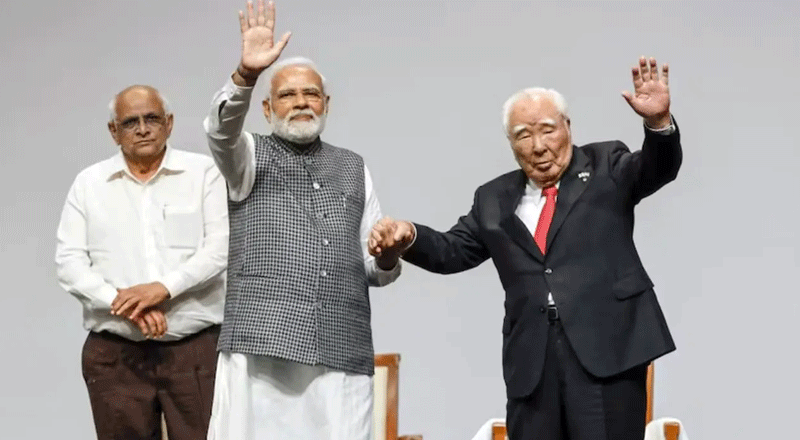The introduction of the Maruti 800 was a defining moment in India’s automotive history. It was not just a car but a revolution that transformed the Indian automobile landscape, making mobility affordable for millions. At the heart of this transformation was Osamu Suzuki, the long-time chairman of Suzuki Motor Corporation, whose vision and leadership reshaped India’s car market. His contribution to India has been recognized with the prestigious Padma Vibhushan, awarded posthumously in 2025.
Osamu Suzuki and the Maruti 800 Revolution
Osamu Suzuki played a pivotal role in India’s automotive sector, pioneering the introduction of affordable, fuel-efficient cars. In the early 1980s, India’s car market was dominated by outdated models like the Ambassador and Fiat, with limited choices for the common man. Recognizing the potential of the Indian market, Suzuki Motor Corporation partnered with the Indian government in 1982 to establish Maruti Udyog Limited.
This collaboration resulted in the launch of the Maruti 800 in December 1983. The car quickly became a sensation, offering reliability, affordability, and fuel efficiency. Demand soared, with waiting lists stretching up to three years and second-hand models selling at a premium. Maruti Suzuki soon established itself as India’s largest car manufacturer, maintaining a market share of over 40% even decades later.
Osamu Suzuki’s Leadership and Vision
Osamu Suzuki, who led Suzuki Motor Corporation for more than 40 years, was a visionary leader known for his innovation and resilience. His leadership helped Suzuki Motor expand globally and cement its dominance in India. Prime Minister Narendra Modi acknowledged his contributions, stating that Suzuki’s efforts had reshaped global perceptions of mobility and strengthened Indo-Japanese relations.
Born in Japan, Osamu Suzuki’s journey into the automotive industry began after he married Shoko Suzuki, granddaughter of Michio Suzuki, the company’s founder. Adopting the Suzuki surname, he became instrumental in the company’s growth. His frugal and disciplined lifestyle reflected his dedication to his work, often flying economy class even in his later years.
During his tenure, Suzuki navigated various challenges, including the global recession of 2008, where he returned as president at the age of 78 to steer the company through difficult times. He eventually passed on the presidency to his son in 2015 but remained involved in leadership before stepping down as CEO due to a fuel-economy misstatement.
A Fitting Tribute
Osamu Suzuki’s impact on India’s automotive industry is unparalleled. By introducing the Maruti 800, he not only provided a reliable and affordable vehicle to millions but also laid the foundation for India’s thriving car market. His vision and leadership transformed Suzuki Motor into a global powerhouse and solidified its deep connection with India.
Honoring Osamu Suzuki with the Padma Vibhushan is a well-deserved recognition of his immense contributions. His legacy continues to inspire innovation, economic growth, and stronger Indo-Japanese ties, making him a true pioneer in the global automotive landscape.
(With inputs from agencies)





